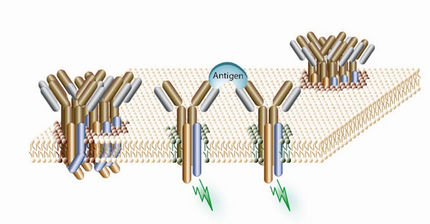Gene Signal Announces Publication of Phase I Data Highlighting Safety of GS-101 for Diseases of the Eye
GS-101 Being Evaluated in Phase III to Prevent Corneal Graft Rejection
Gene Signal, a company focused on developing innovative drugs to manage angiogenesis based conditions, announced publication of data from a phase I study demonstrating that the antisense oligonucleotide GS-101 (eye drops) is safe, with no signs of intolerability following administration to healthy volunteers. GS-101 is an antisense oligonucleotide that acts by blocking the production of insulin receptor substrate 1 (IRS-1), a protein required for the formation and growth of new blood vessels. The data were published in the British Journal of Clinical pharmacology (Vol. 68 (2) pp169-173) by researchers led by Dr. Hermann Kain, University Hospital Basel, Basle, Switzerland.
“This publication describes the excellent safety data we obtained from our first-in-man study with GS-101,” noted Eric Viaud, CEO of Gene Signal. “We have moved GS-101 through clinical evaluation and are now conducting an international phase III trial for the prevention of pathologic corneal neovascularisation, a major risk factor in corneal graft rejection, the most common transplantation procedure that saves the sight of approximately 46,000 people worldwide each year.”
The phase I open-label study was designed to investigate the safety, tolerability and bioavailability of GS-101 (eye drops) in 14 healthy volunteers. Initially, one single low dose of GS-101 was administered into one eye. If no signs of intolerance were observed, subjects then received escalating doses of GS-101 (3 times daily) in one eye for 14 days. GS-101 was found to be safe and well tolerated by all 14 subjects in escalating doses (43 to 430 µg/day).
Topics
Organizations
Other news from the department research and development

Get the life science industry in your inbox
By submitting this form you agree that LUMITOS AG will send you the newsletter(s) selected above by email. Your data will not be passed on to third parties. Your data will be stored and processed in accordance with our data protection regulations. LUMITOS may contact you by email for the purpose of advertising or market and opinion surveys. You can revoke your consent at any time without giving reasons to LUMITOS AG, Ernst-Augustin-Str. 2, 12489 Berlin, Germany or by e-mail at revoke@lumitos.com with effect for the future. In addition, each email contains a link to unsubscribe from the corresponding newsletter.





















































